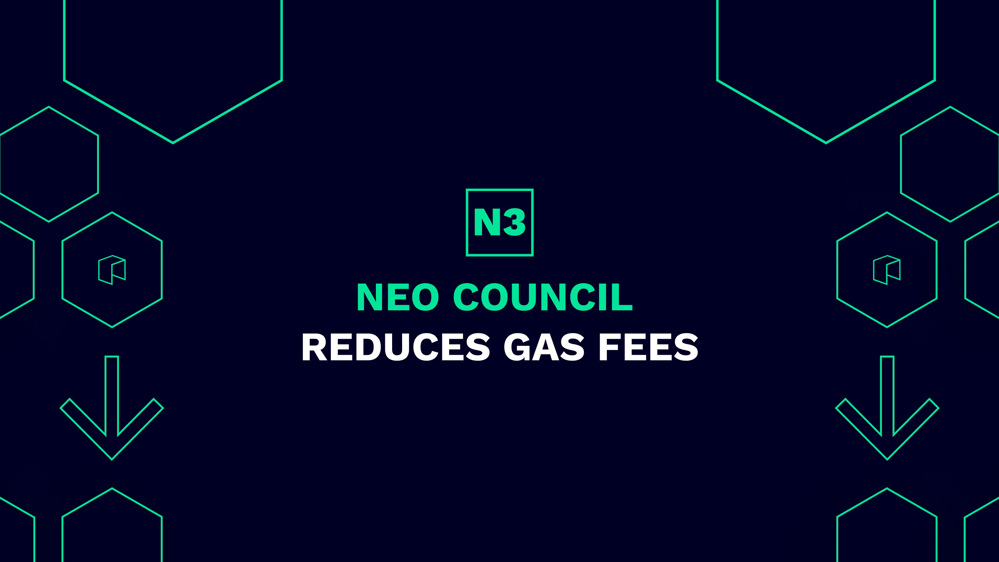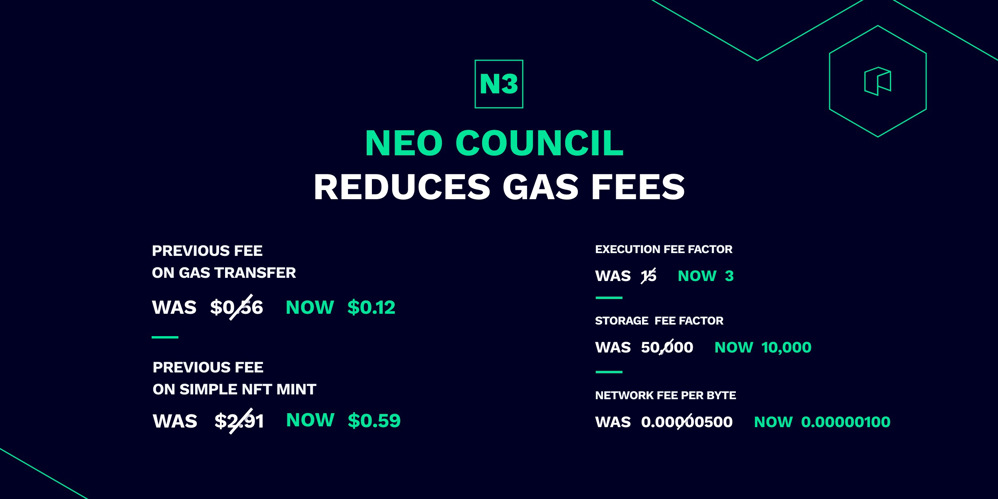BLOG September 14, 2021
Neo Council Reduces GAS Fees by 80%
The Neo Council has performed its first action on the Neo N3 MainNet by reducing network and system fees by 80%, effective immediately.
The new network settings have been changed as follows:
- Execution fee factor: 15 → 3
- Storage fee factor: 50,000 → 10,000
- Network fee per byte: 0.00000500 → 0.00000100
Prior to the reductions, the cost for a GAS transfer on Neo N3 was approximately US $0.56, and the cost for a simple NFT mint was around $2.91.
Following the fee reduction, the cost for a GAS transfer on Neo N3 is now closer to $0.10, and the cost for a simple NFT mint is near $0.60.
On the Neo N3 blockchain, the network uses a new pricing system that allows the various system calls, VM instructions, and other fees to scale proportionally with each other via a single base factor. Network fees are scaled using a fee per byte parameter, while system fees are adjusted through the execution fee and storage fee factors.
About the Neo Council
The Neo Council consists of 21 member nodes elected by NEO holders and tasked with governing the Neo N3 blockchain. It is important that NEO token holders vote for Neo Council candidates that they feel will represent their vision for the Neo ecosystem and take an active role in governance.
In its current form, the Neo Council operates primarily off-chain. Current council members maintain a communication channel where governance proposals can be discussed, formalized, and put to a vote to determine consensus.
For a change to the network settings to become part of the blockchain and influence future blocks, the council must work together to produce a multisig transaction. This transaction is only valid if it has signatures from a majority of council members, meaning at least 11 out of 21 signatures.
The multisig transactions for the GAS fee reductions were committed into the ledger in blocks 233137, 233140, 233142 and can be found below:
- 0x3c9b57b319361355d78b41d38c9717ba47c19b19f81ea7a54c1eee72f31976ac
- 0x52ab01416fdf6a673bfc9492d3445d27b401a81ee5c7228a18254a5b467c7c28
- 0x70dae6f1eb3829da1884085e69ce20120194d489aa896a0a1ceeb15771b83d0f
Users can vote using the Neo Governance portal found at governance.neo.org.
 MIGRATE TO N3
MIGRATE TO N3

